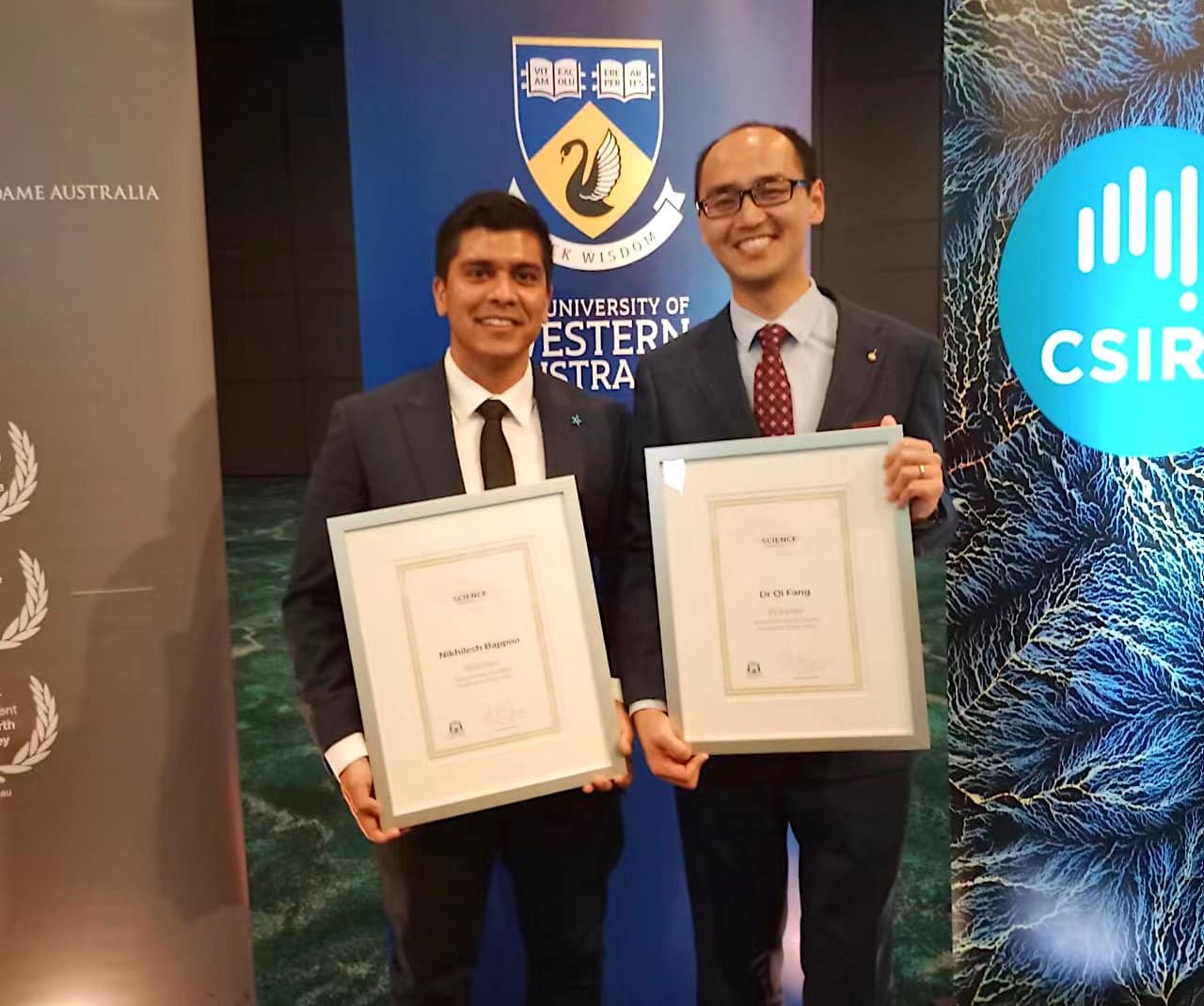
Applying the tools used by oil and gas engineers to investigate how blood flows in the placenta during pregnancy led to Harry Perkins Institute PhD student being named joint winner of the ExxonMobil Student Scientist of the Year at the 2022 Premier’s Science Awards.
The Woodside Early Career Scientist of the Year was awarded to Harry Perkins Institute and UWA’s School of Engineering’s Dr Qi Fang for his work on an imaging cancer probe.
Nikhilesh Bappoo is a passionate biomedical engineer with a vision to develop and ethically commercialise novel solutions to unmet clinical needs.
He specialises in simulating blood flow, from ‘engineering the placenta’ to predict abnormalities during pregnancy, to predicting aneurysm growth and rupture.
“My research focused on both normal conditions and when things go wrong. We’re exploring how unfavourable blood flow behaviour in the placenta contributes to fetal growth restriction and likewise, how such flow abnormalities in the aorta, the main vessel off the heart, can lead to aneurysm growth and even rupture.
His entrepreneurial mindset combined with cutting edge science and engineering led to the formation of WA medical device company, VeinTech, with an emergency consultant and medical researcher. VeinTech aims to reduce the high rate of failure of cannulation through the commercialisation of their imaging device.
Nikhilesh has also had a long commercialisation experience with VitalTrace, another WA company developing a novel biosensor to improve childbirth outcomes for mothers and babies.
Dr Qi Fang was awarded the Woodside Early Career Scientist of the Year for the development of imaging tools for complete cancer removal during surgery.
“About one in four breast cancer patients undergo a second or even a third surgery because not all the cancer was removed during the first surgery.
“Our research is to develop real time cancer imaging tools that can help surgery remove all the cancer during a single operation.
“A key advantage of our technology is that it can be made cost effective and compact for the potential to be widely used not only in big metropolitan hospitals but also in rural and remote areas across Australia,”
“Our research is a multi-disciplinary project involving engineers, physicists, clinical researchers, surgeons, pathologists and consumers,” Dr Fang said.
Dr Qi Fang had previously been named by The Australian as one of ‘Australia’s top 40 researchers who are less than 10 years into their careers’ and awarded a prestigious Raine Robson Fellow.
